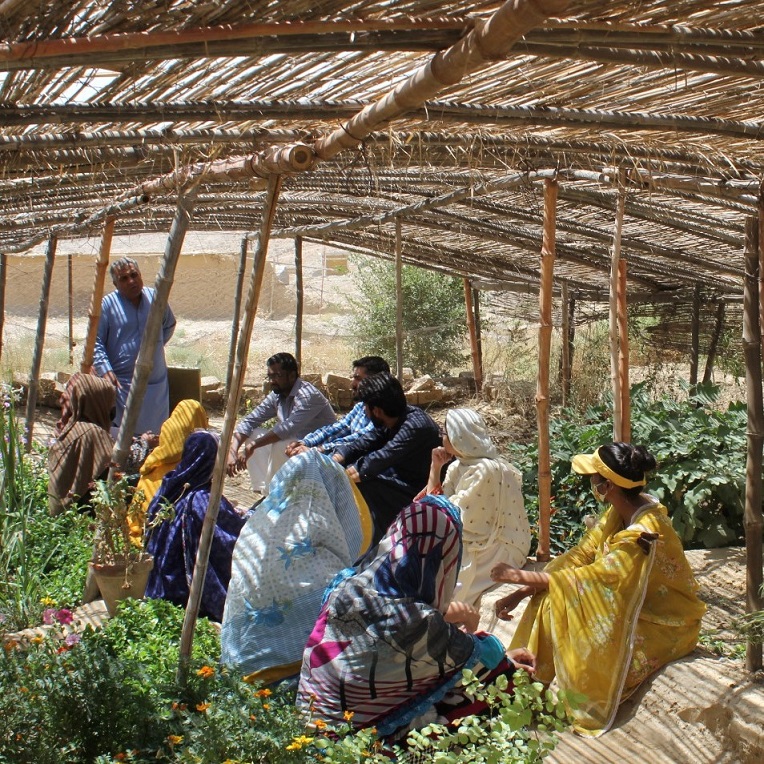In the Hana Urak area of Quetta, a university with architecture made of earth, thatch, and tarp has been built. Wind turbines and solar energy are used for electricity supply. Water needs are fulfilled through rainfall, and the rooms inside remain warm in winter and cool in summer without mechanical assistance.
This is an entirely environment-friendly ‘Community Development University’ established by environmentalist and expert in the field, Safdar Hussain, originally from the Mastung district. While he earned his master’s degree in Computer Science from Balochistan University, his passion lay in environmental conservation. He has worked in the same field for the past fifteen years.
Safdar explains that the fundamental purpose of constructing a university like this is to attract rural and urban communities towards environmentally friendly constructions, alternative means of energy, and water resources.
“In fulfilling this concept, the non-governmental organisation Institute for Development Studies and Practices (IDSP) collaborated. The government allocated four acres of land at a tourist spot. Local people’s knowledge and skills were utilised, and that’s how this university was completed.”
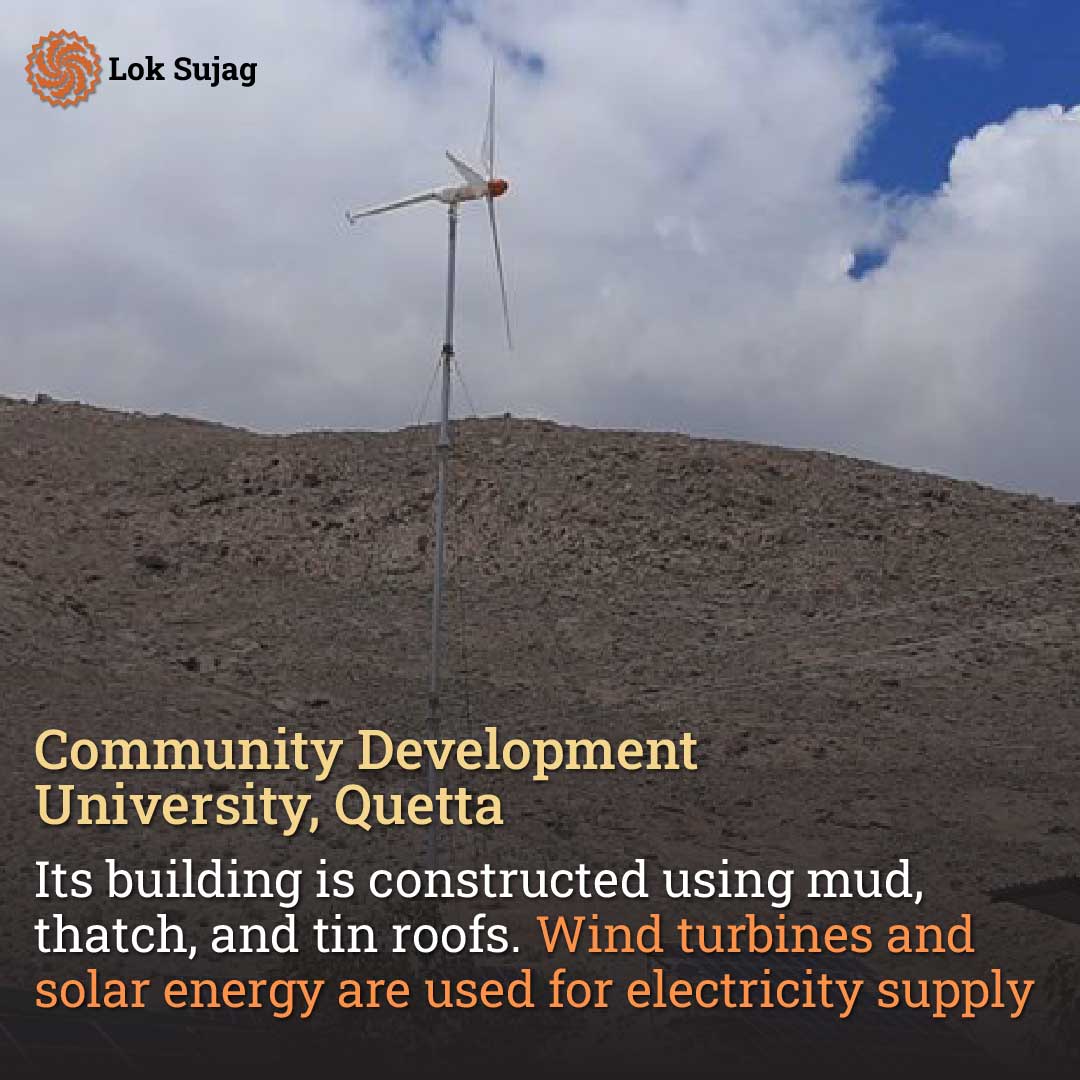
He says that another significant purpose of this university is to provide a better platform for ideas and talent. Many highly educated individuals are unable to find a direction in life. If someone comes up with a new concept, they’re not always given the opportunity simply because they lack experience.
He says that approximately seven thousand young individuals are affiliated with this university. Students are taught here to transform themselves first and advance their concepts. Their work involves engaging with communities. Those who study here don’t receive degrees; instead, they receive financial and administrative training.
Last year, Balochistan province was also severely affected by floods. Around two hundred thousand houses were destroyed here, and more than three hundred people died.
Environmental expert Dr Ibrahim Khilji has revealed that the major cause of most destructive flooding was the construction of natural waterways and anti-environment activities. Similarly, several districts, including Quetta, remained deprived of gas and electricity for weeks after the floods. Safdar believes that the energy crisis is becoming more intense. Electricity is reduced during summers and gas during winters. The university fulfils these needs through wind turbines and solar power. Approximately eight kilowatts of electricity are being generated here.
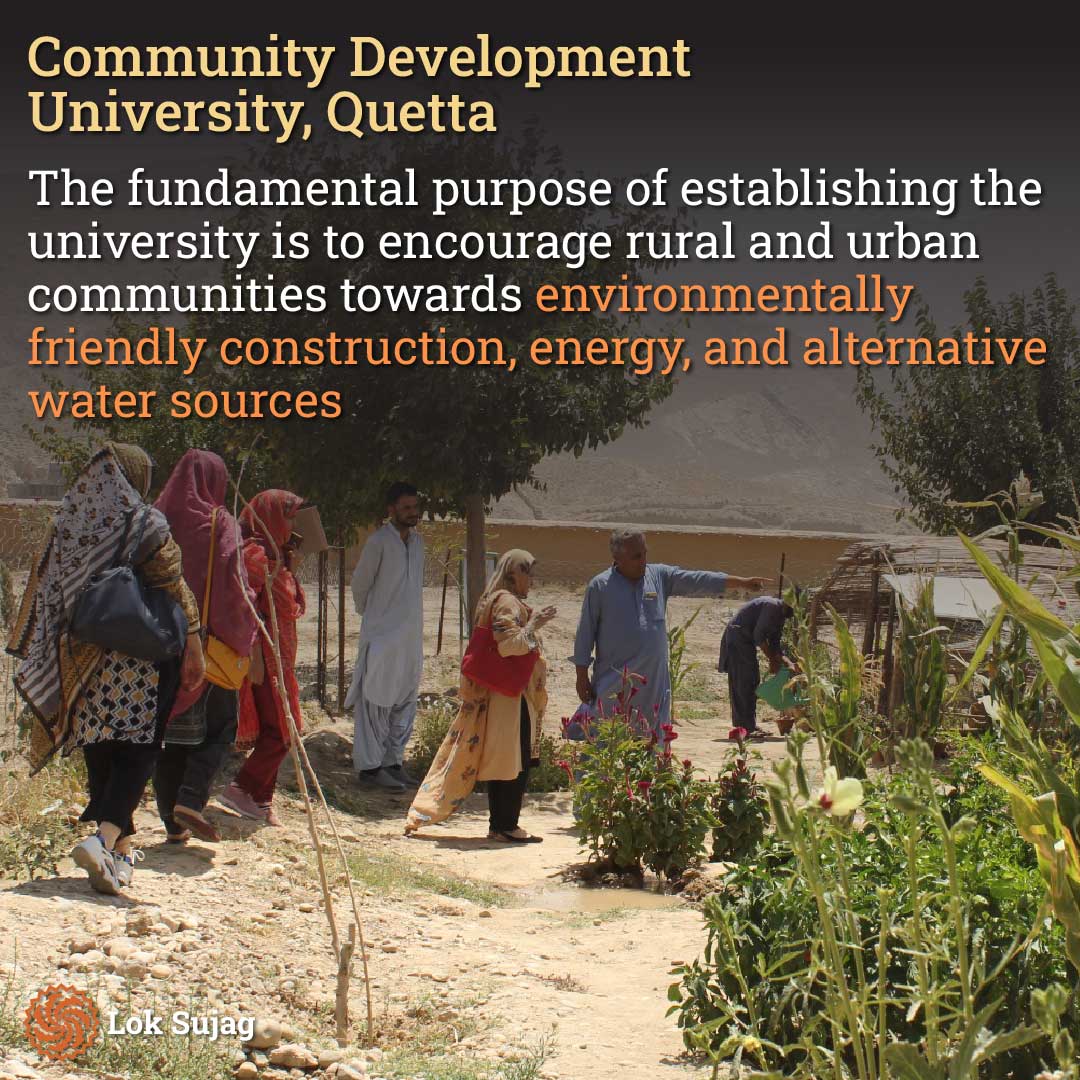
He says that the university’s stoves are built in a local style. These use less firewood but produce more heat. Gas is also being produced through cow dung. Rainwater is collected at the university. The water from taps is also directed to underground tanks, easily fulfilling the university’s needs.
Safdar says they also use this natural water to cultivate vegetables at the university. More than 35 people work at the university. Here, sheep, goats, and chickens are also raised. In addition to computer labs, classrooms, a hall, and a library, Model University has also built a girls’ hostel and an admin block. However, these rooms are not very spacious.
The creator of this model states that Quetta has nine cultures and nine languages. Large rooms could have been built here, but they selected a community construction model that is close to the local nature or ‘indigeneity’. Safdar says various university students visit this environmentally friendly Model University for construction and environment studies. Government officials are also coming here, and the feasibility of building primary health centres and government schools is being assessed.
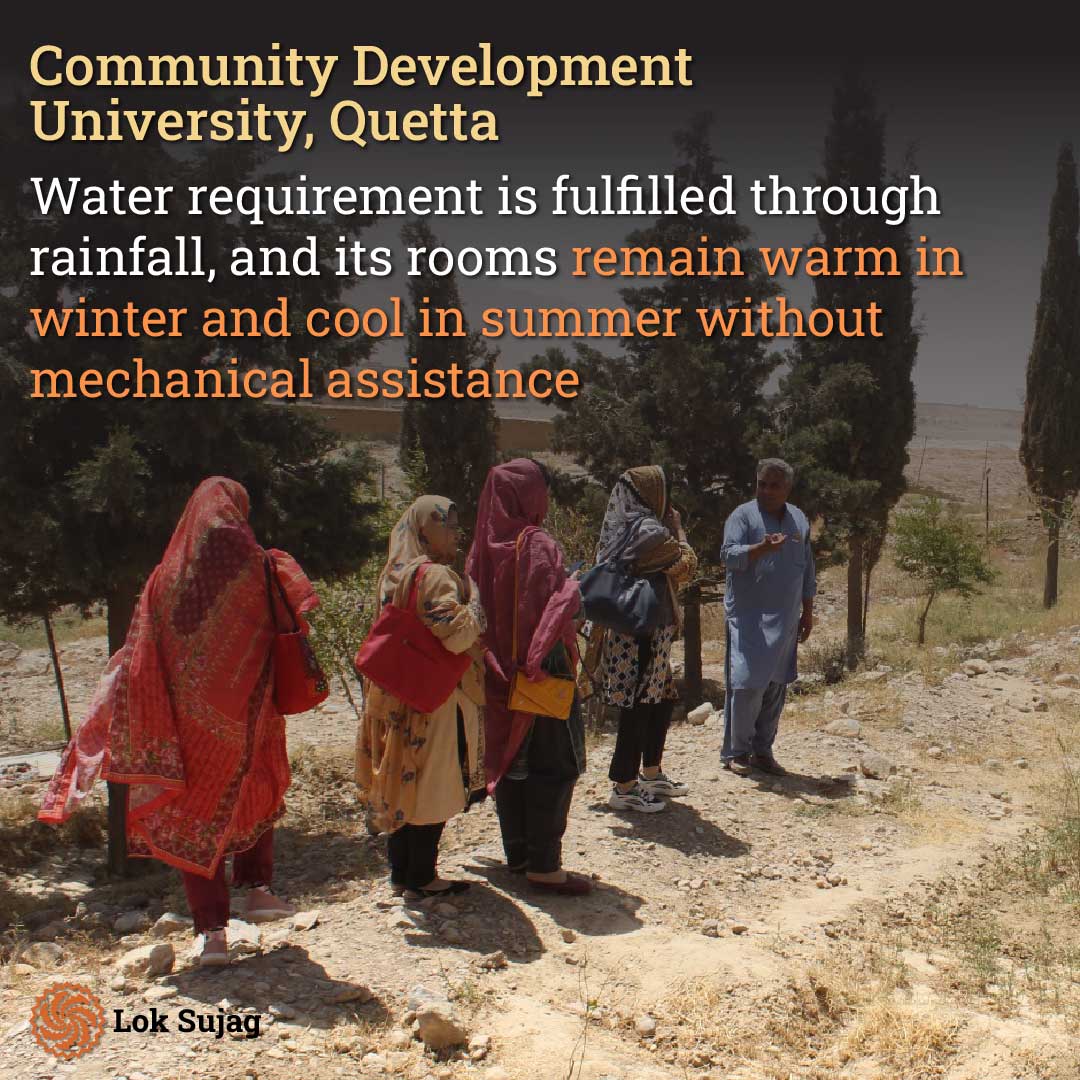
He says that if any government department or local individuals are interested in adopting the environment-friendly model, they are fully prepared to provide complete assistance. He wants Balochistan to become completely environmentally friendly in its constructions and tackle the threats of climate change.
“Some people make fun of me, asking how those living in houses made of glass and cement in the modern era will live in mud huts. So we tell them that these are the very constructions that will combat climate change challenges in the future.”
Also Read
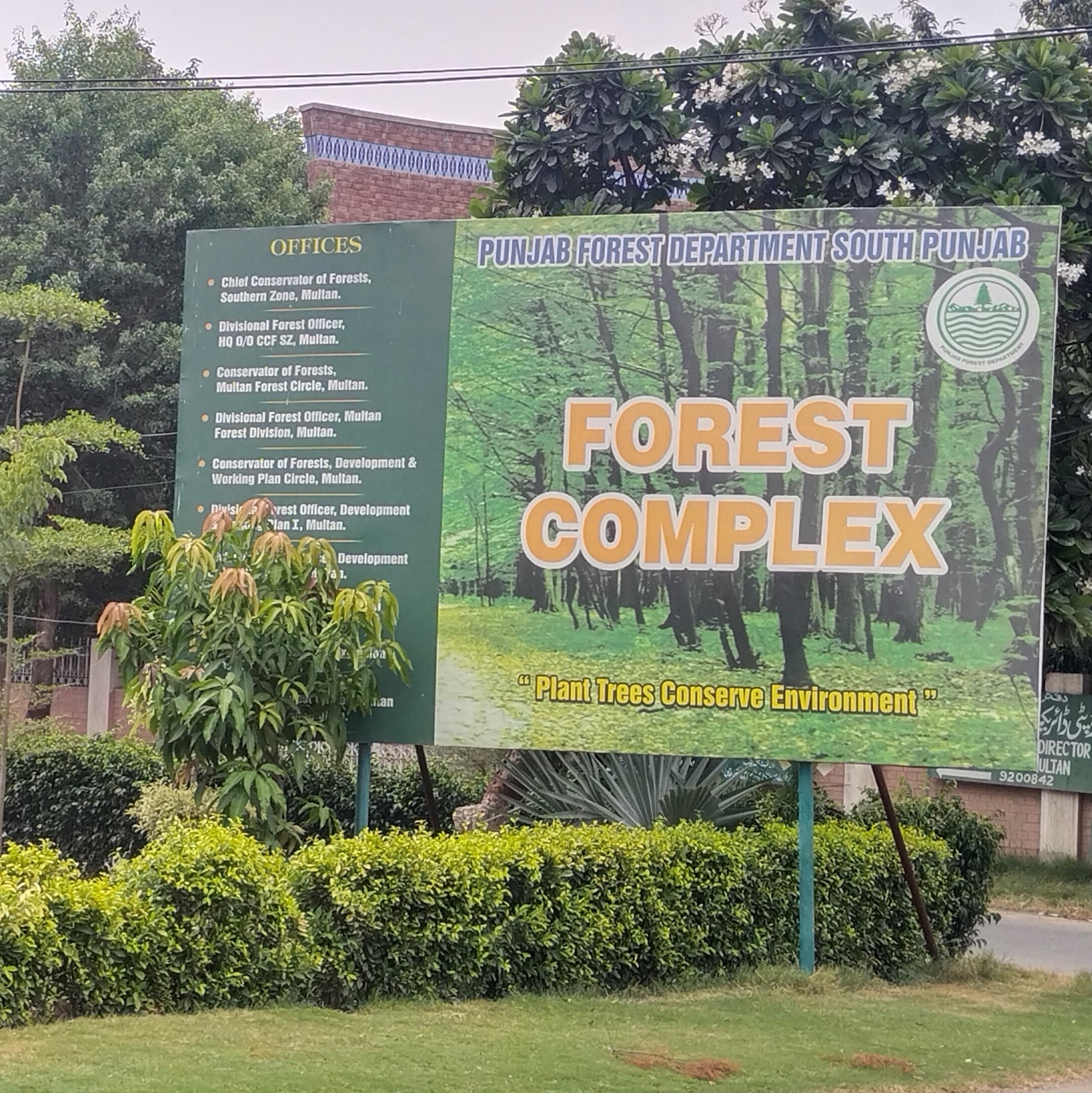
Environmental crisis in Multan: Deforestation, wood theft, and rising temperatures threaten ecosystem
Hamza Shafqat, the Secretary of Information for Balochistan, states that the Community Development University is an exemplary environmentally friendly model. It should be recognised in Balochistan and across the entire country.
He mentions that the Balochistan government is taking numerous measures to mitigate environmental risks and reduce damages. Models like the Community Development University should be introduced in rural and urban regions.
Fatih Muhammad is a resident of the village Kalli Abdul Wahid Kakar in the Noha Orak area. He has visited the university multiple times. He says he is gathering information on generating electricity, agriculture, and water conservation in his own way, as this approach can make life easier. In the future, he also intends to test this model in one way or another.
Published on 29 Aug 2023
